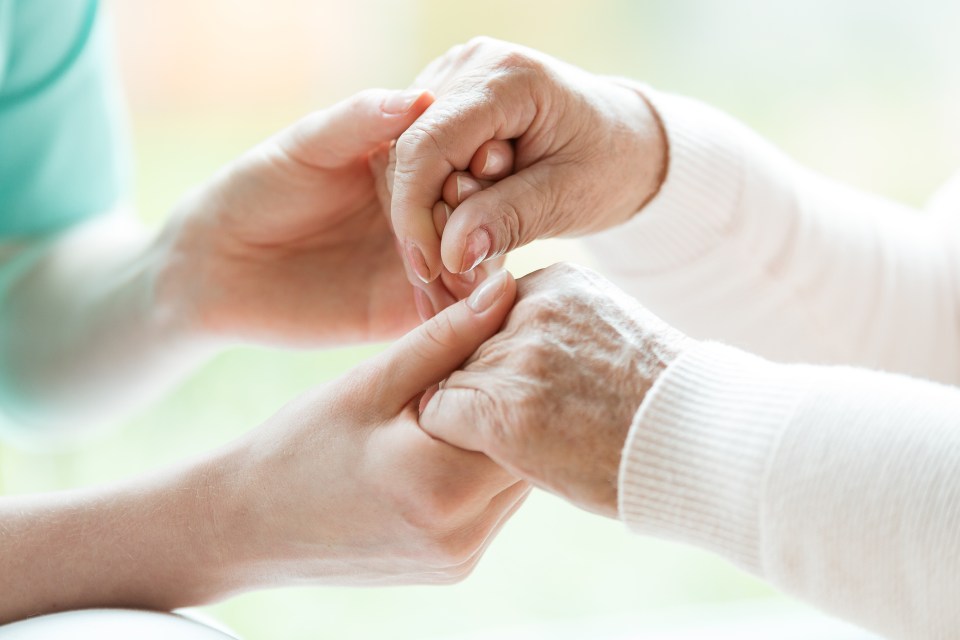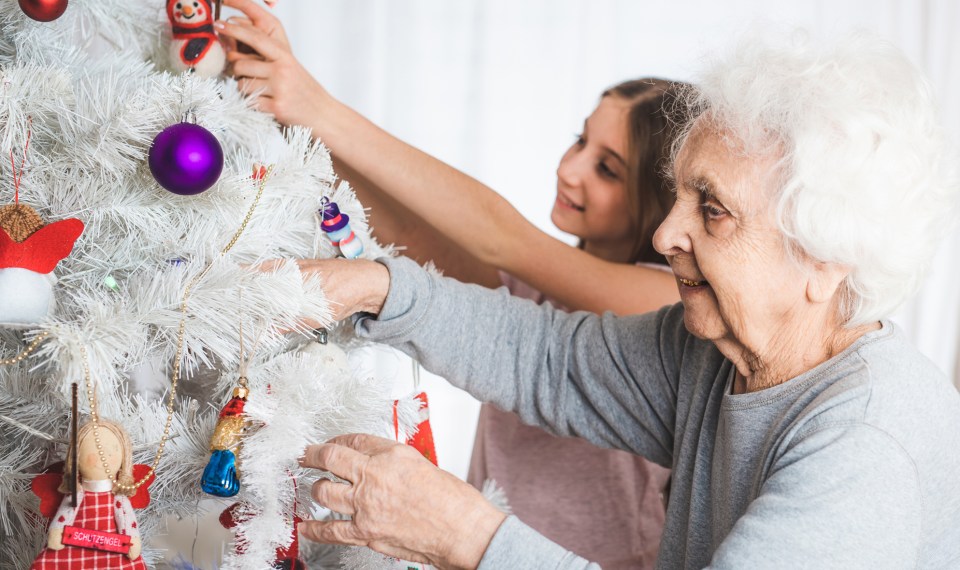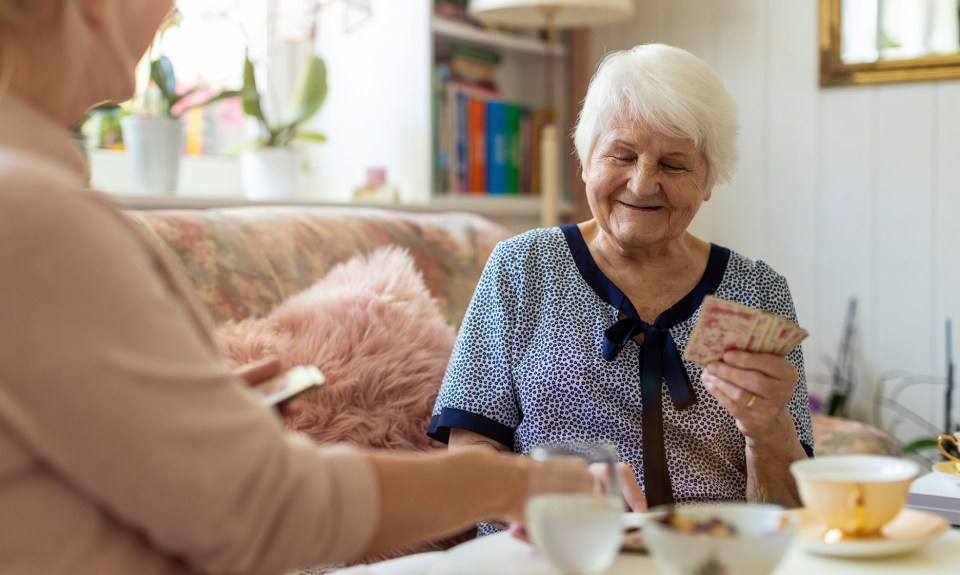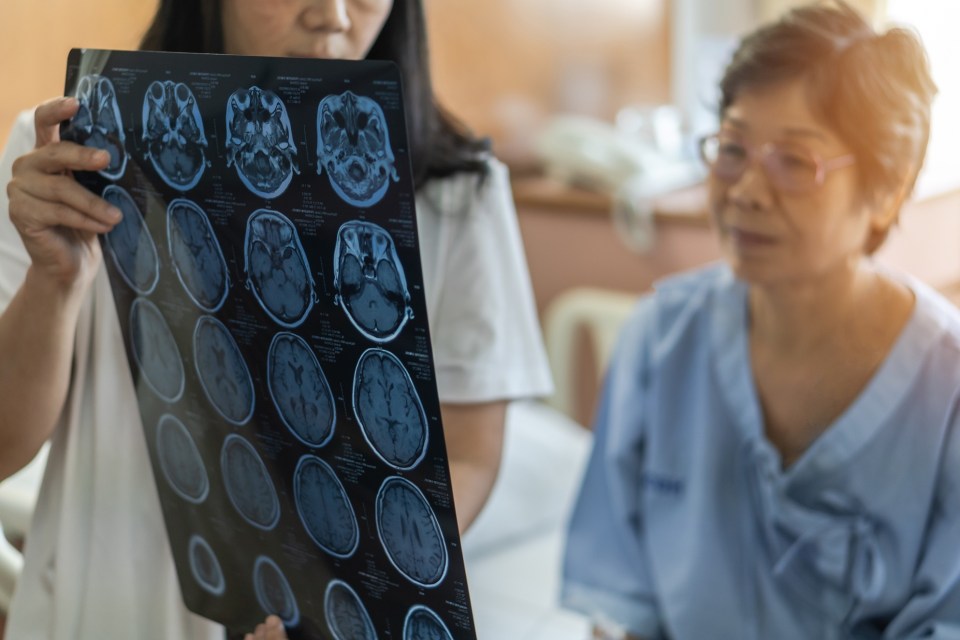As a new hospice chaplain I had a plan, I really did. I had mapped out a concise plan for my hospice patient visits before I ever stepped into a home. That well thought out, prayed over and plotted plan didn’t even last a day. I remember sitting in my truck after that first day and crying out “please help me God!” Fortunately, I can laugh about it now.
It was after my third solo visit that I realized the “plan” was going off the rails. Suzy (not a real patient name) was a dementia patient who attempted to bite me when I tried to hold her hand for prayer. She did not succeed in biting me, but she did accomplish something pretty powerful that day. Even with all the training I had received, nothing taught me more about hospice chaplaincy than that incident. It was that moment when I realized how spiritual care had to be evaluated and individualized for a specific person.
Suzy was trapped in a world that my mind did not know how to enter. Even more so, I didn’t know how to breach that area spiritually.
Spiritual care is largely a verbal relationship with a person. Seminary doesn’t offer a class on ministry to a group of people who are often unable to process your message through the standard optics of ministry. Dementia requires Chaplains to take on spiritual care in ways possibly never considered before. Spiritual care to dementia patients is hard to do and even harder to evaluate.
So why bother?
According to research, there are some amazing benefits of spiritual care with dementia patients. Studies have shown that cognitive decline is slower for people with higher spirituality and religious practices1,2and a person’s level of spirituality does not decrease in the early stages of dementia3,4.
As a new chaplain, my biggest question was: how do I practically minister to patients with this difficult disease? Identifying the person’s disease stage is the key to answering this question. Is the disease in its early stage, middle stage or late stage? Once that is determined, then try to identify secondary markers. Can the person verbalize, recognize or rationalize? While typical methods of spiritual care may not be as helpful, there are some other modalities that may prove useful as stand-alone techniques or in conjunction with typical methods. This list is by no means exhaustive or exclusive. Rely on your spiritual acumen to guide you in your spiritual care for patients with dementia.
Touching
I have found that many patients enjoy a gentle touch on the shoulder or hand holding during praying. It is entirely possible that this time of spiritual touch may be the only touch they have received that day. It can be a holy moment for that person. Conversely, we must recognize that touching can bring about agitation (see Suzy above).
Worship music
I carry a small Bluetooth speaker with me into each home and sometimes play music from my phone. I find that even a non-verbal patient will respond in some way to an old hymn such as “Amazing Grace.”
Popular scripture verses
John 3:16 seems to be top of the list. Don’t forget popular Bible stories and selections like the Beatitudes. However, be mindful to how someone reacts to what’s being read to them and continue or stop accordingly.
Pictures
I will often look around a home and find pictures or symbols to use as a lead in to spiritual discourse.
Silence
Don’t be afraid of silence. One should never underestimate the ministry of presence. An older minister once told me early in my ministry: “people will not remember what you preached a few years from now, but they will NEVER forget the time you were there for grandma when she died.” That stuck with me. Time is our most valuable asset. Invest it wisely. Sometimes words are not necessary to make spiritual deposits into people. Holy conversations don’t always need words.
As a chaplain, it can be a challenge to meet people where they are spiritually with regard to dementia patients. Thinking outside of the box can bring much needed spiritual nourishment to someone who needs it. Be comfortable knowing that while they may not remember you visited, they will carry a feeling of spiritual blessing long after you leave that day.
The key for this chaplain was to learn to focus on the needs of a person, not focusing on what I felt they needed.
1 Kaufman et al (2007). Cognitive decline in Alzheimer disease: Impact of spirituality, religiosity and QOL. Neurology, 68,1509-1515. N=70, MMSE=24, Israel.
2 Coin, A. et al. (2010). Does religiosity protect against cognitive and behavioral decline in Alzheimer’s dementia? Current Alzheimer Research, 7, 445-452. N=64, MMSE=21, Italy.
3 Jolley, D., Benbow, S. M., Grizzell, M., Willmott, S., Bawn, S. and Kingston, P. (2010). Spirituality and faith in dementia. Dementia: The International Journal of Social Research and Practice, 9, 311–325. N=25, MMSE=24, England
4 Beuscher, L. and Grando, V. T. (2009). Using spirituality to cope with early-stage Alzheimer’s disease. Western Journal of Nursing Research, 31, 583–598. N=15, MMSE=18-26, United States (Arkansas)
The content of this site is for informational purposes only and should not be taken as professional medical advice. Always seek the advice of your physician or other qualified healthcare provider with any questions you may have regarding any medical conditions or treatments.



